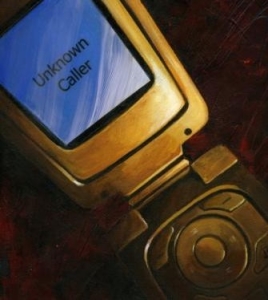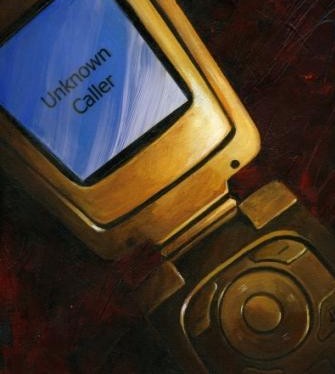According to the United State’s Supreme Court, the answer is “heck yeah.”
On April 22nd, 2014 the U.S. Supreme Court decided Navarette et. Al. v. California. A case where police initiated a traffic stop based on an anonymous 911 tip that a vehicle had recently run them off the road.
Do police have to verify an anonymous tip?
Does the Fourth Amendment require an officer who receives an anonymous tip regarding drunken driving or reckless driver to corroborate dangerous driving before stopping the vehicle?
What happened here
 A 911 caller reported a driver ran her off the road and gave a vehicle description and license number. The California highway patrol spotted the truck in another county about fifteen minutes later and followed it for five minutes. During that five-minute period the police saw no traffic violations but stopped the vehicle based on the anonymous tip. As the officers approached they smelled marijuana coming from the bed of the truck and recovered about 30 pounds of weed.
A 911 caller reported a driver ran her off the road and gave a vehicle description and license number. The California highway patrol spotted the truck in another county about fifteen minutes later and followed it for five minutes. During that five-minute period the police saw no traffic violations but stopped the vehicle based on the anonymous tip. As the officers approached they smelled marijuana coming from the bed of the truck and recovered about 30 pounds of weed.
How the Court found this stop lawful
The Court held that the traffic stop complied with the Fourth Amendment because under the totality of the circumstances test, the officer had reasonable suspicion that the driver was intoxicated.
The cornerstone of police conducting investigative stops based on anonymous tips has been the ability to assess the tipster’s credibility, or put another way, police needed to corroborate the information before they could legally stop someone. The Court relied on its prior anonymous tip cases of Alabama v. White and Florida v. J.L. as useful guides in reaching its conclusion.
In White, the Court found the anonymous tip was sufficiently reliable because police corroborated the tipsters information about predicting future behavior (woman would drive a brown Plymouth station wagon from a particular apartment building to a particular motel transporting cocaine) that demonstrated a “special familiarity” with the defendant’s affairs which implied the tipster had reliable information about illegal activity, therefore police had reasonable suspicion to conduct an investigatory stop.
However, in J.L., the Court found no reasonable suspicion to stop a person based on an anonymous tip (young black male wearing plaid shirt standing at a bus stop was carrying a gun) because there was no prediction of future behavior that could be corroborated to assess the tipster’s credibility.
So the emphasis has been on the tipster’s credibility in giving police reasonable suspicion of criminal activity to conduct a lawful investigatory stop. The facts in this case do not follow that principal. The caller provided no future predictive movements, nor any allegations of future criminal activity. In deed the police followed behind the reported vehicle and did not observe any traffic infractions to warrant a lawful stop. To this end, the Court established ongoing criminal activity by concluding that being run off the road created reasonable suspicion of an ongoing crime such as drunk driving.
But didn’t the police follow the driver? Yes they did and observed no indications of driving under the influence.
In fact the caller never mentioned the driver was drunk nor even raised the likelihood that the driver was drunk (See Scalia’s dissent). To make it worse, the State offered no evidence to suggest the defendant did anything suspicious upon being followed by the police such as suddenly slowing down, pulling off to the side of the road, or turning somewhere to see whether they were being followed. So, even if the tip was about drink driving it was uncorroborated by the police themselves and affirmatively undermined. (Scalia again)
DUI Attorney Charleston, South Carolina
If you have been arrested for DUI in the Charleston area call an experienced and trusted Charleston DUI Lawyer at the Dale Savage Law Firm, today 843-530-7813.

